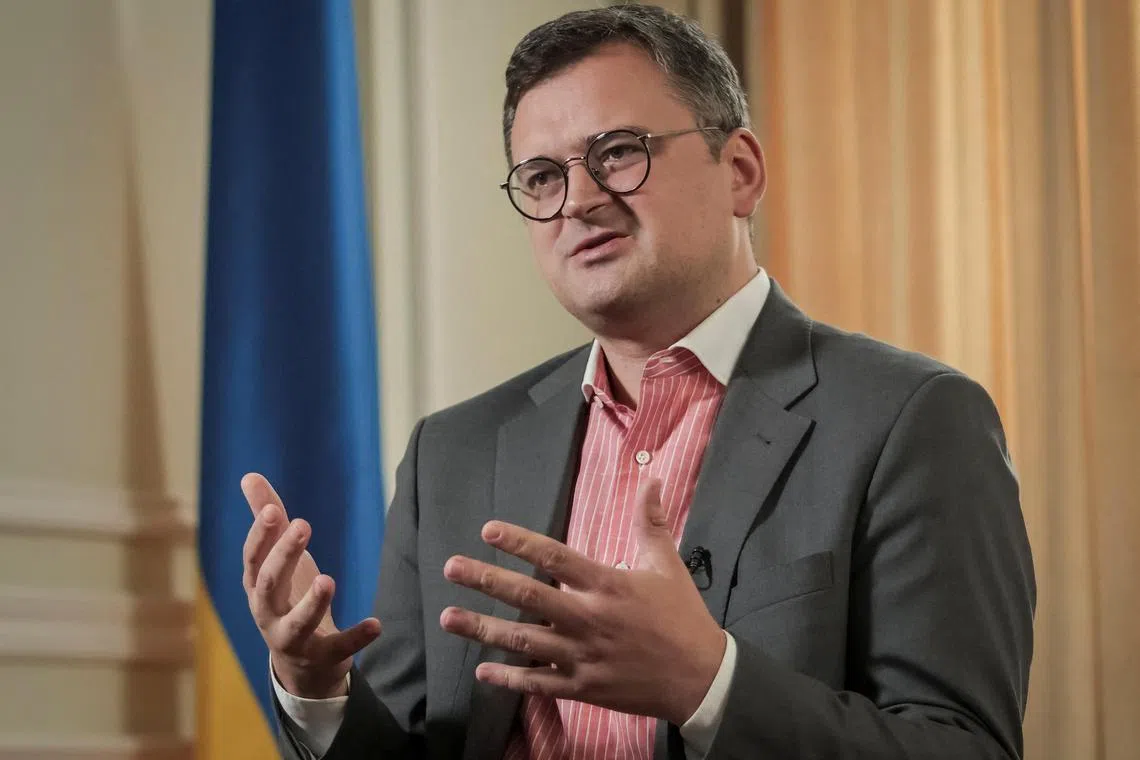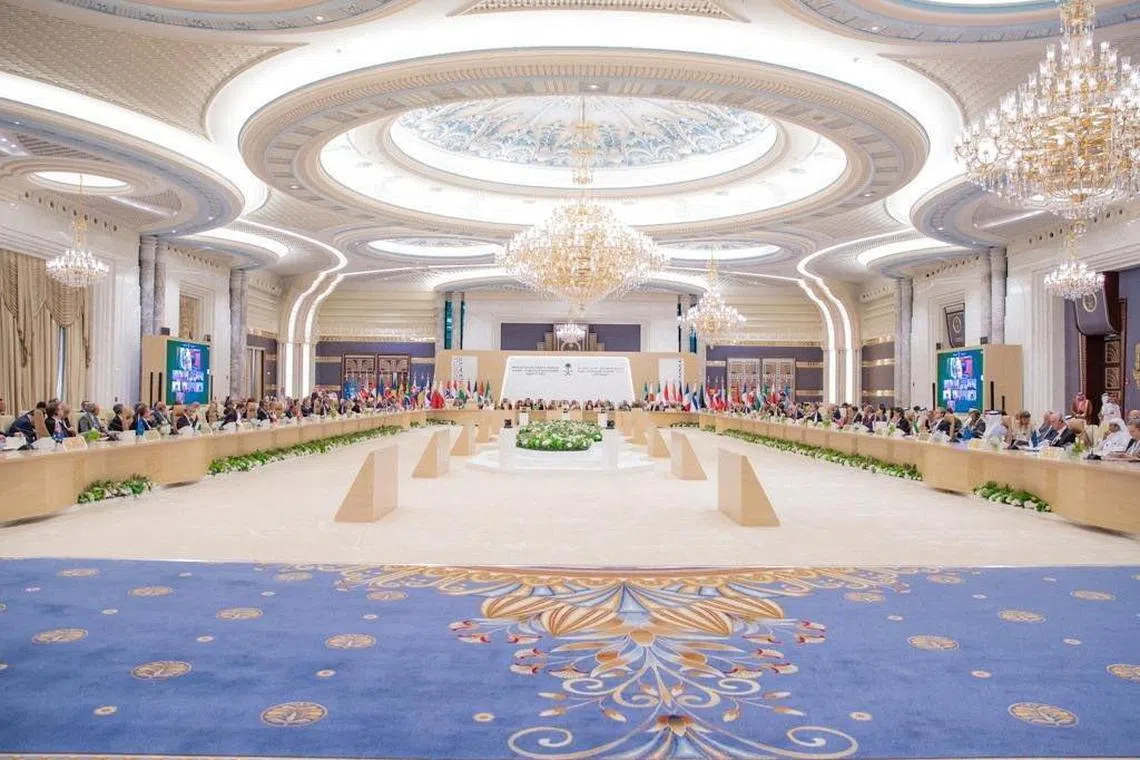Ukraine says Saudi talks were ‘breakthrough’, Kyiv has more to offer Africa than Russia does
Sign up now: Get ST's newsletters delivered to your inbox

Ukrainian Foreign Minister Dmytro Kuleba says the number of countries interested in participating in meetings such as the Jeddah talks has “increased dramatically” in recent weeks.
PHOTO: REUTERS
Follow topic:
KYIV – Saudi-hosted talks last weekend were a “breakthrough” for Kyiv that showed it is possible to rally global support around the 10-point plan proposed by President Volodymyr Zelensky
“If a country wants to be in the front seat of world politics, it has to become part of these coordination meetings,” Mr Dmytro Kuleba said in an interview with Reuters, referring to the talks in Jeddah
Officials from more than 40 countries – including China, India, Brazil, the United States, and European countries, but not Russia – took part in the talks, which were seen as an attempt by Kyiv to build a broader coalition of powers to support its vision of peace.
Ukraine has had strong support from the West in fending off Russia’s invasion,
Mr Zelensky’s plan, which Kyiv wants to serve as the basis for peace to end the war launched in February 2022, includes the withdrawal of all Russian troops and the return of all Ukrainian territory to its control.
Mr Kuleba said the number of countries interested in participating in meetings such as the Jeddah gathering has “increased dramatically” in recent weeks. He added that the events lay a crucial foundation for future talks on Ukraine’s vision for peace.
“We are fully satisfied with the dynamics of this process,” he said.”I believe the meeting in Jeddah was a breakthrough because for the first time, we brought together countries representing (the) entire world, not only Europe and North America.”
Russia has said it is open to peace talks with Kyiv but insists on its claim to four Ukrainian provinces it said it annexed in 2022 and fully or partly controls, as well as Crimea, which it annexed in 2014 – a condition Kyiv will not accept.
Vying for Africa
Mr Kuleba acknowledged that countering Russian influence in places like Africa – where ties to Moscow date back to the Soviet era – remains a challenge as Ukraine seeks to broaden the range of countries behind it.
The minister has made three wartime visits to the continent. He sought to contrast Ukraine’s aims there – which he said included cooperation in areas such as education, construction, and digitalisation – with the presence in Africa of the Russian mercenary group Wagner.
“Unlike Russia, we want to invest in Africa what will benefit both them and us, because Russia’s biggest investment in Africa is Wagner,” Mr Kuleba said.
“And this is the investment in (the) insecurity of Africa.”

Officials from more than 40 countries, including China, India, Brazil, the US and European countries, took part in the peace talks in Jeddah.
PHOTO: REUTERS
Russia’s refusal in July to extend a pact allowing Ukrainian grain to leave Black Sea ports
During a summit in St Petersburg in July, African leaders pressed Russian President Vladimir Putin
But Mr Kuleba said Turkish President Recep Tayyip Erdogan, who has balanced relations between Moscow and Kyiv, stood the best chance of reviving the United Nations-brokered deal.
“I think it will not be an exaggeration to say that President Erdogan is probably the only man in the world who can convince President Putin to return to the Black Sea Grain Initiative,” he said.
West still ‘on track’
Mr Kuleba also played down the notion that Kyiv’s slow-moving counter-offensive
Ukrainian forces have made only incremental gains in parts of the east and south, where well-built Russian defences have slowed their push across vast swaths of the steppe.
While acknowledging that certain public “voices” in the West were questioning the logic of their respective governments’ support for Ukraine, Mr Kuleba said he saw no signs from officials that support was waning.
“The key thing for us is to keep governments on track – and they are on track so far.”
A White House spokesman said in July that the Ukrainian operation was “not a stalemate”
Mr Kuleba also expressed optimism that Ukraine would eventually receive the long-range missiles it is seeking from the US and Germany, which would allow Ukrainian forces to strike deeper behind Russian lines.
“They are in the process of making their own calculations and analysis,” he said.
“And these options... I think they will be unlocked. But it requires more time.” REUTERS

